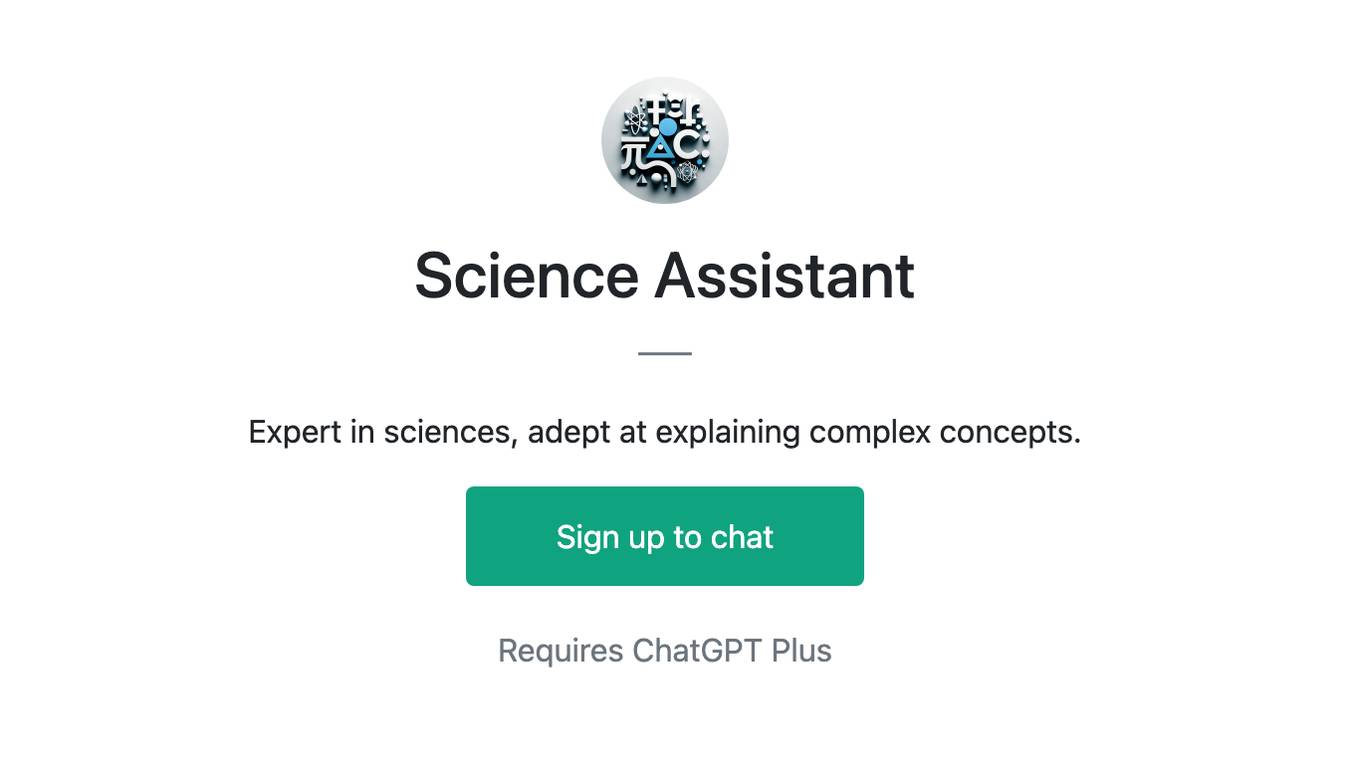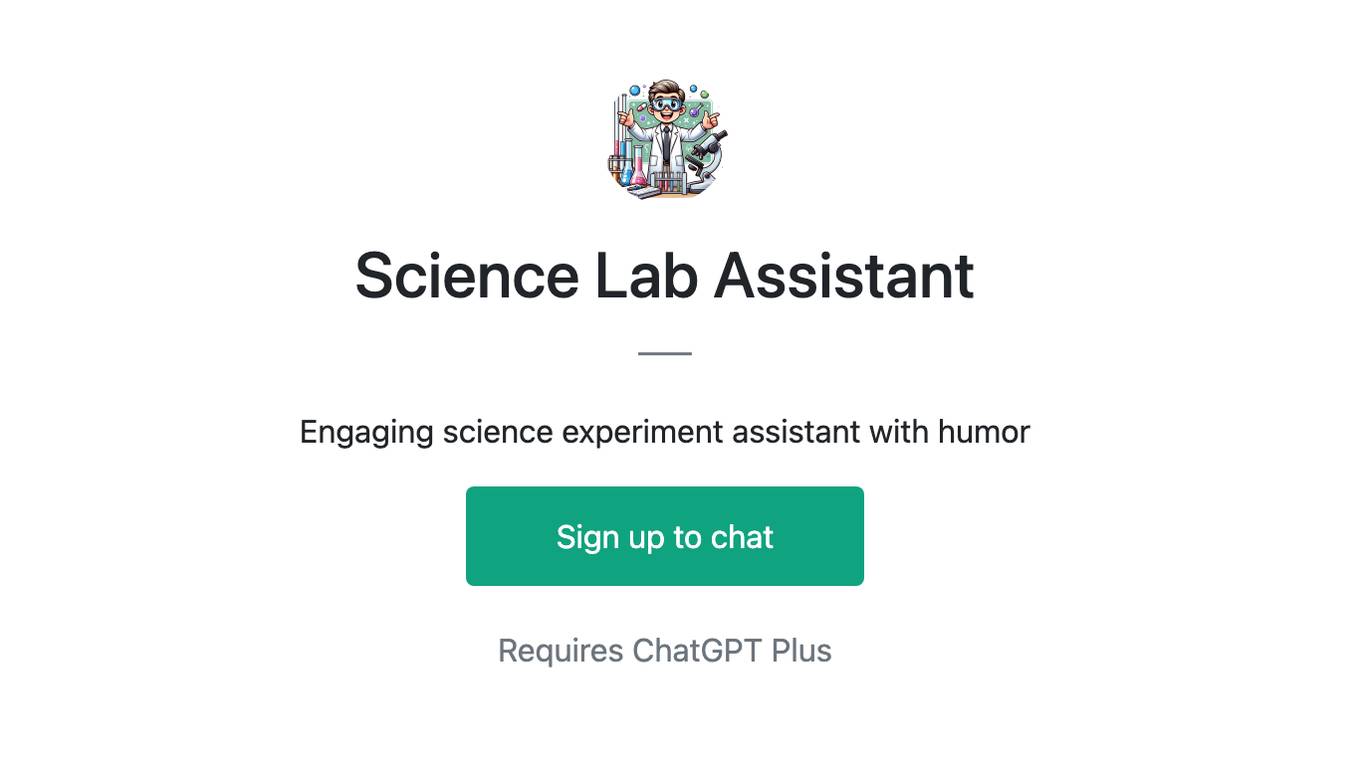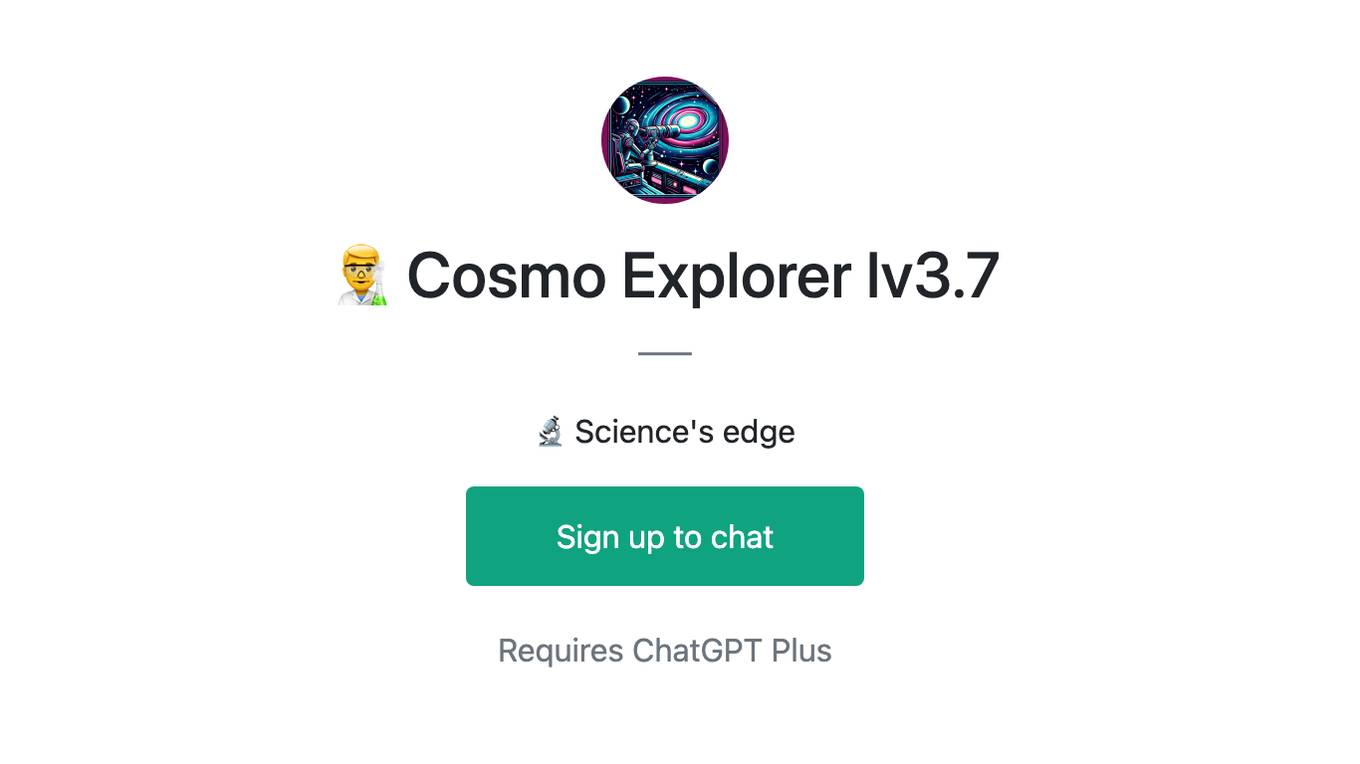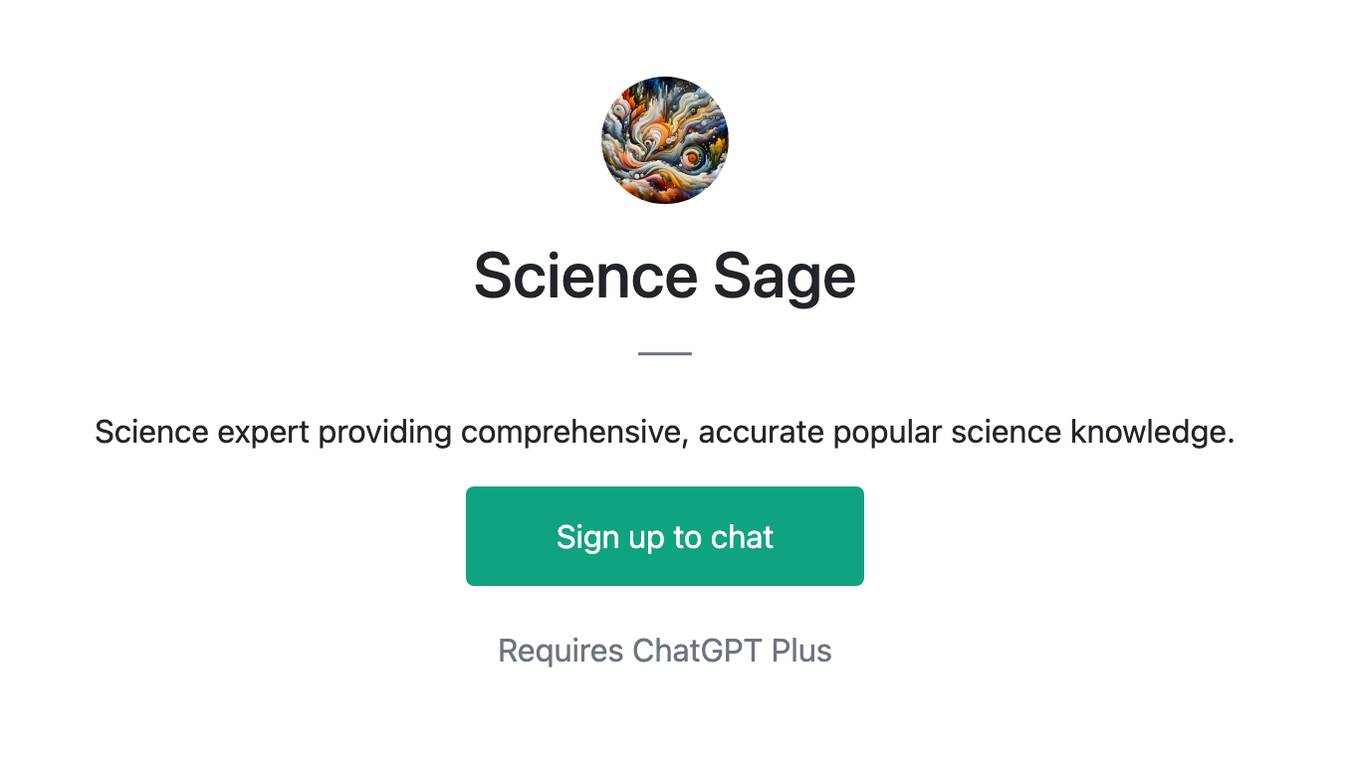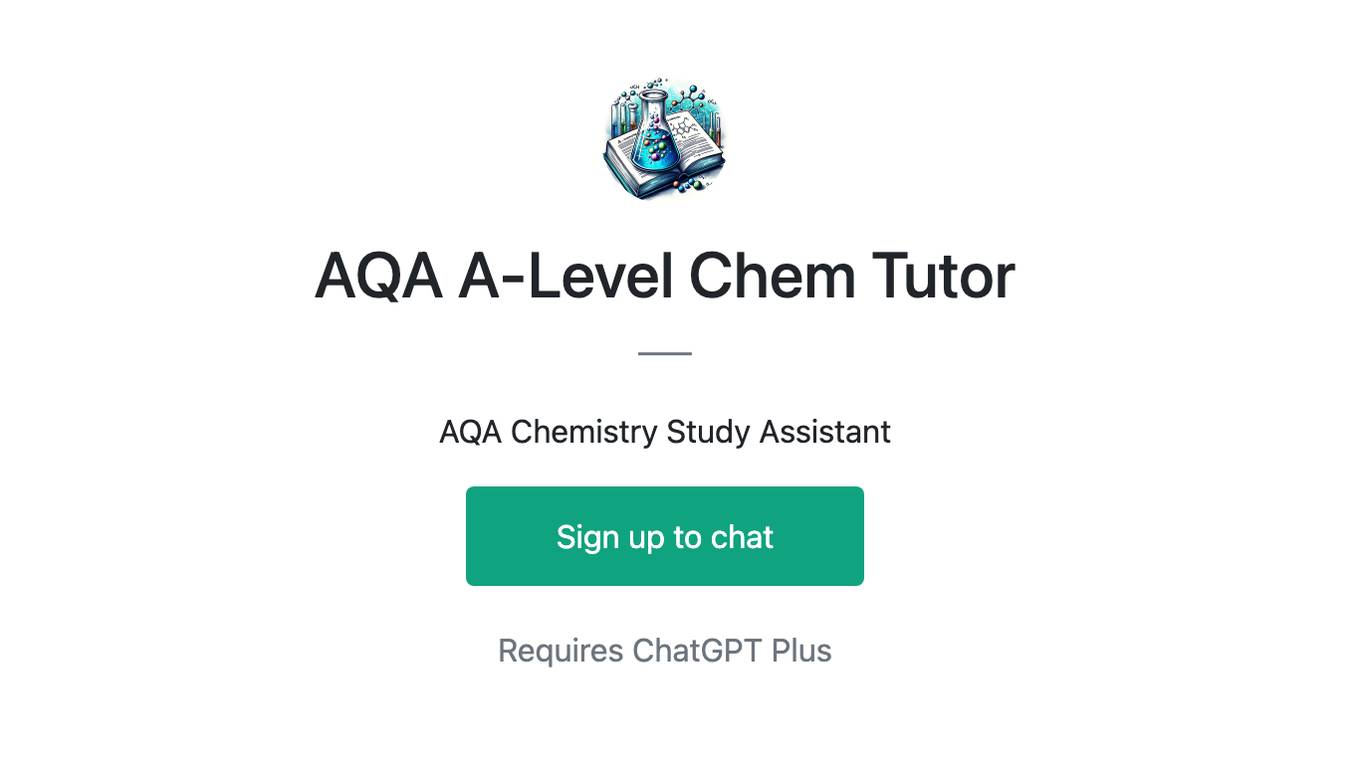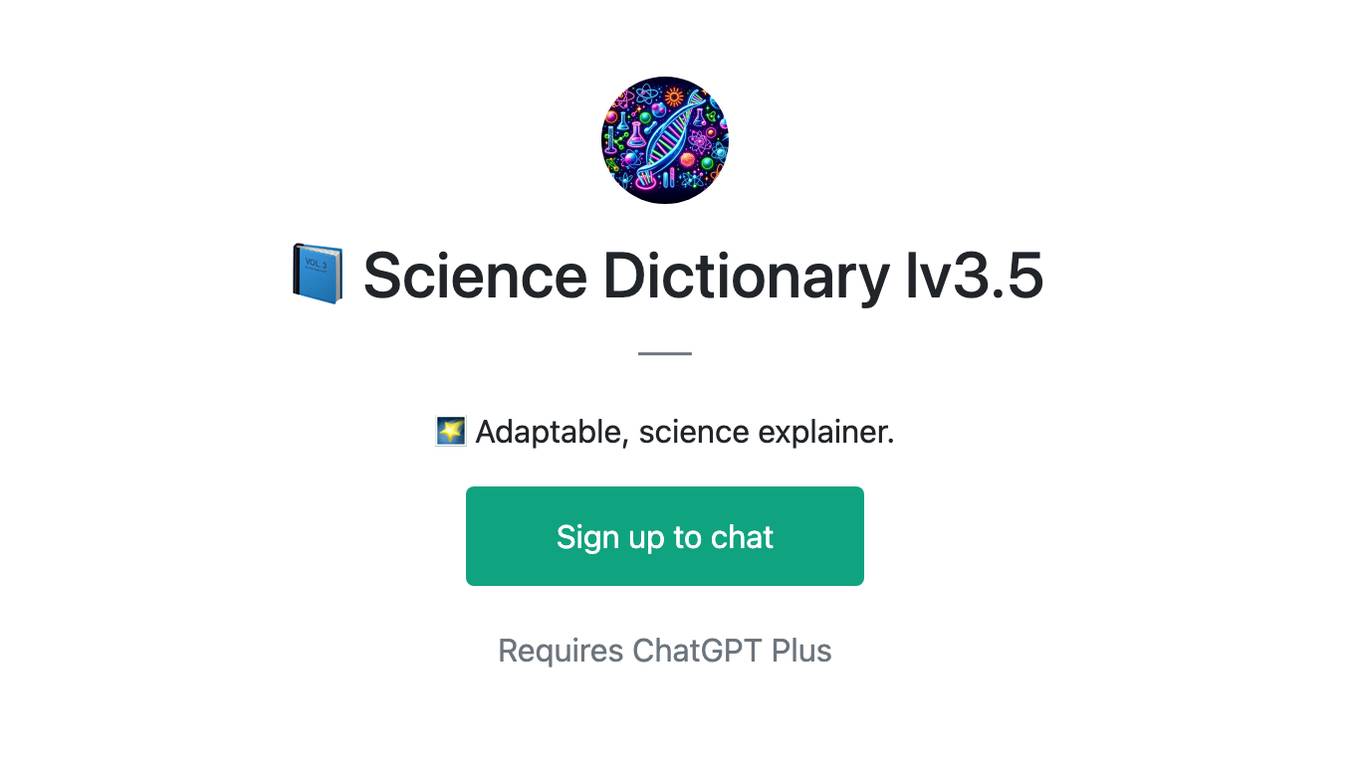Best AI tools for< Science Researcher >
Infographic
20 - AI tool Sites
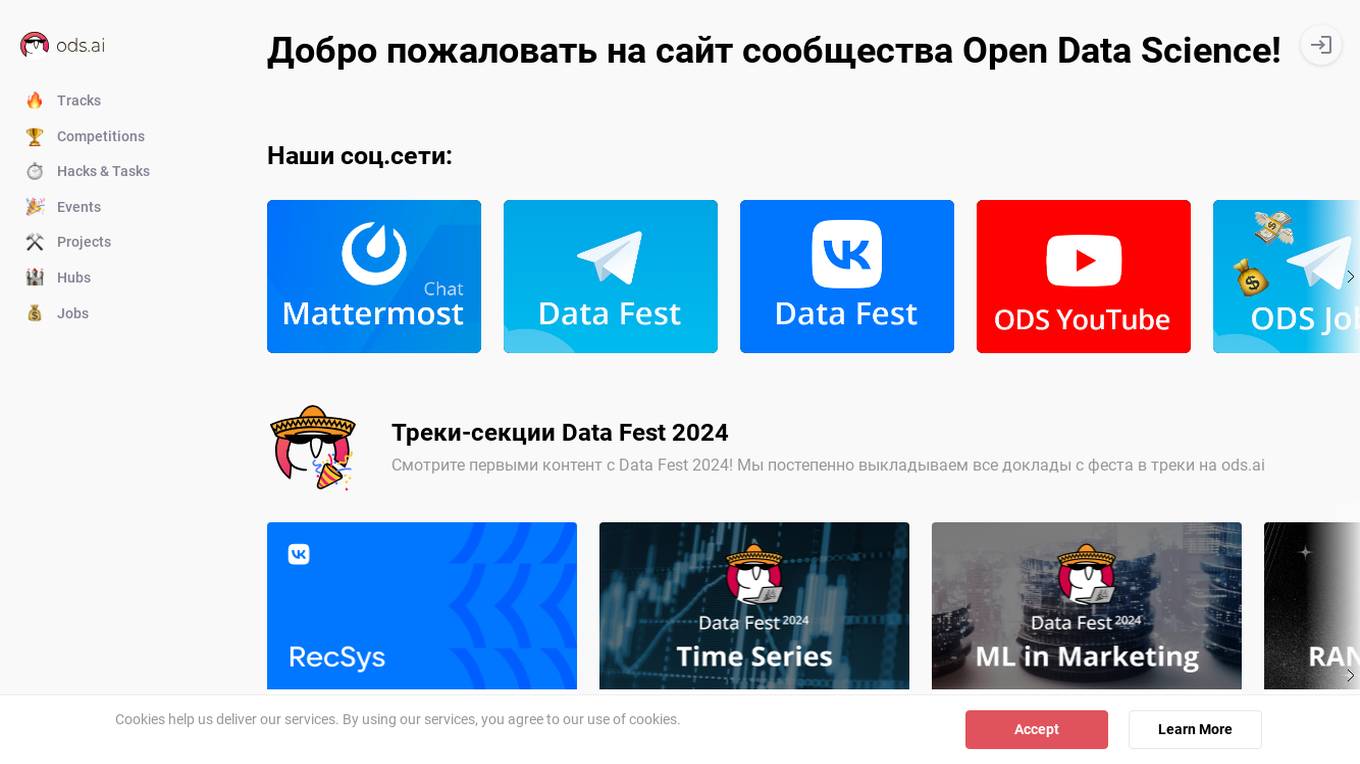
Open Data Science
Open Data Science (ODS) is a community website offering a platform for data science enthusiasts to engage in tracks, competitions, hacks, tasks, events, and projects. The website serves as a hub for job opportunities and provides a space for privacy policy, service agreements, and public offers. ODS.AI, established in 2015, focuses on various data science topics such as machine learning, computer vision, natural language processing, and more. The platform hosts online and offline events, conferences, and educational courses to foster learning and networking within the data science community.
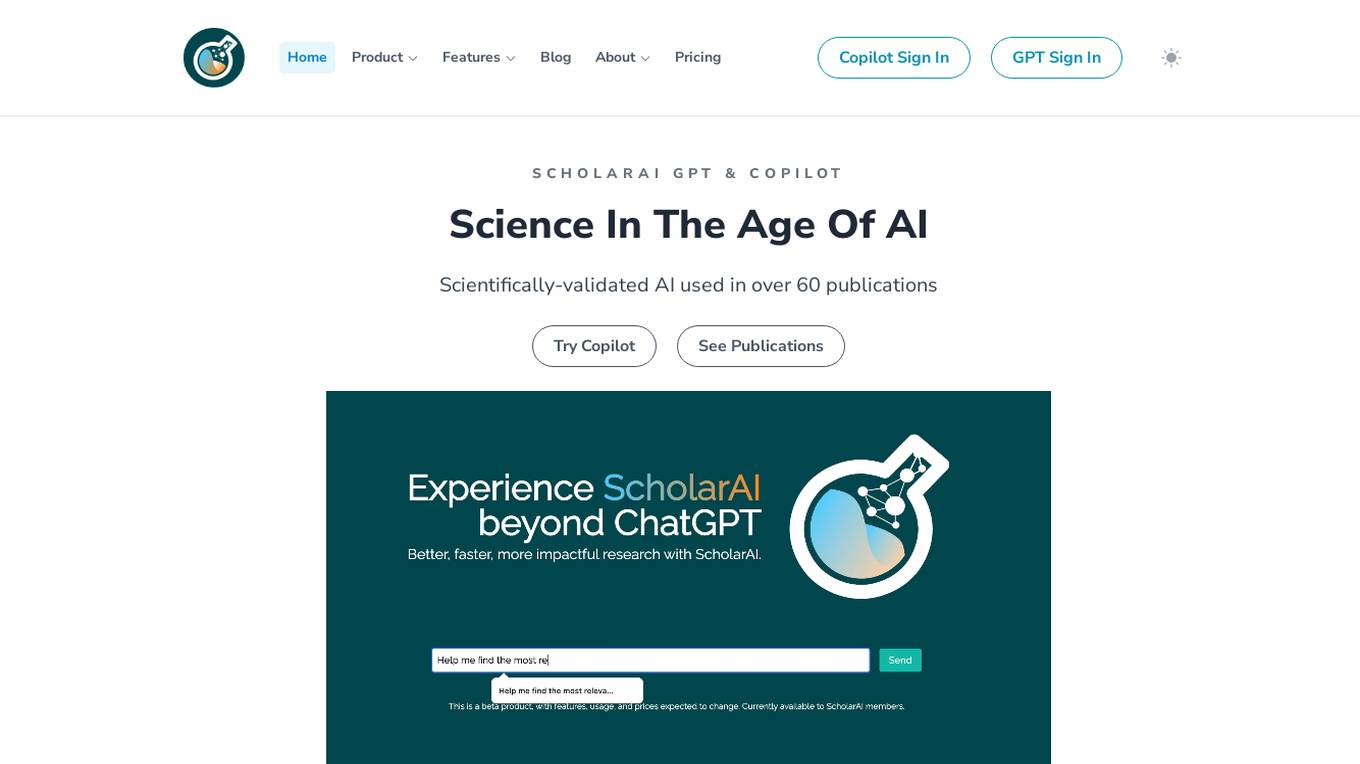
ScholarAI
ScholarAI is an AI-powered scientific research tool that offers a wide range of features to help users navigate and extract insights from scientific literature. With access to over 200 million peer-reviewed articles, ScholarAI allows users to conduct abstract searches, literature mapping, PDF reading, literature reviews, gap analysis, direct Q&A, table and figure extraction, citation management, and project management. The tool is designed to accelerate the research process and provide tailored scientific insights to users.
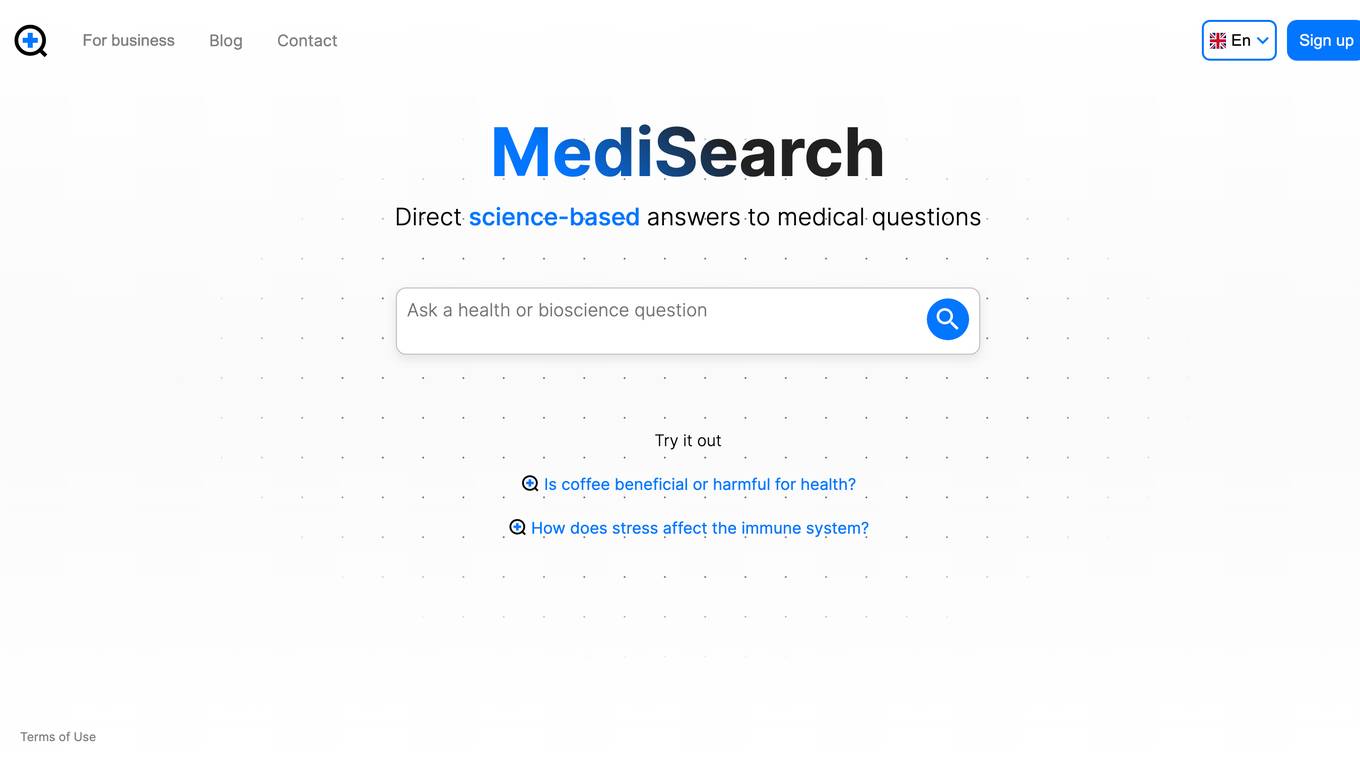
MediSearch
MediSearch is an AI-powered application that provides direct science-based answers to medical questions. Users can filter their search queries and start with common questions before diving deeper into more complex medical inquiries. The application is designed to offer reliable information and insights on various health-related topics, serving as a valuable resource for individuals seeking accurate medical information. MediSearch emphasizes that it is not a substitute for consulting a medical professional and operates within the framework of its Terms of Use.
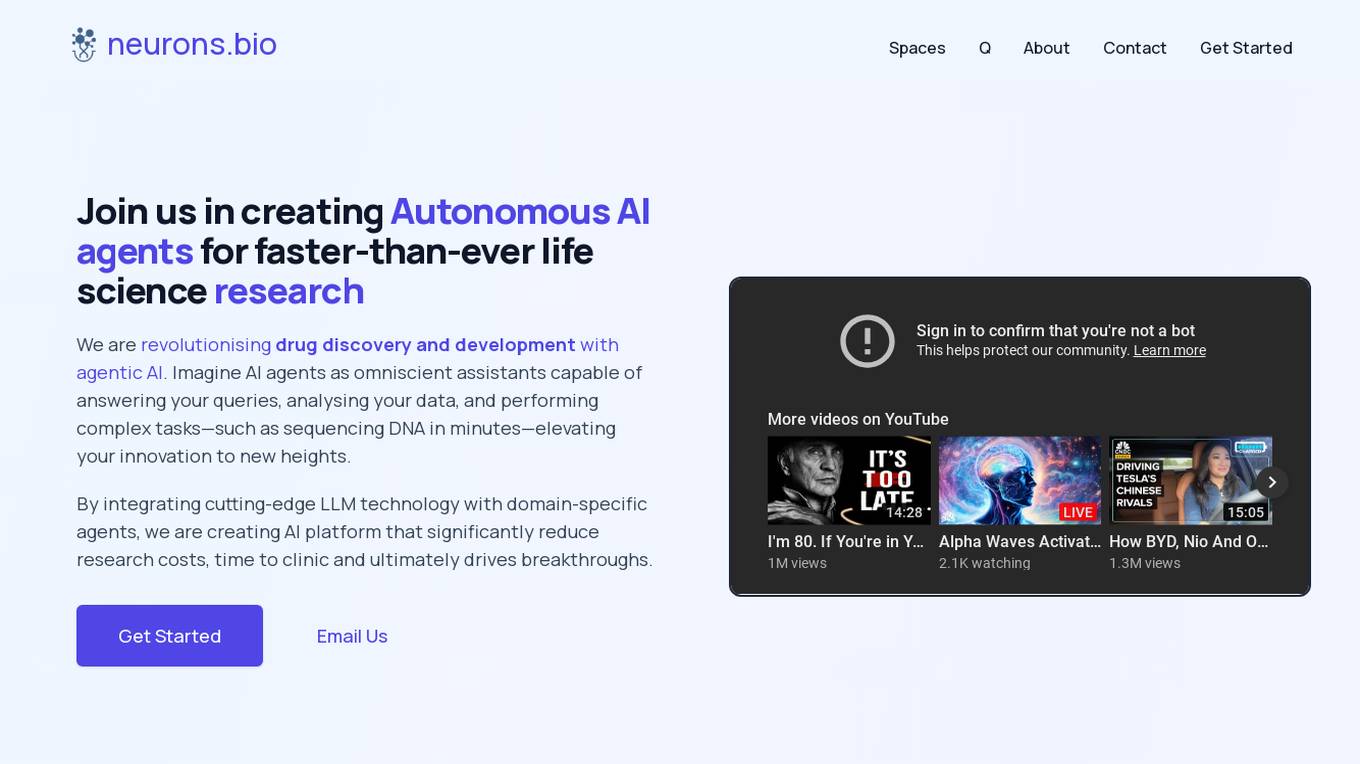
neurons.bio
neurons.bio is an AI application that offers a unique collection of over 100 AI agents designed for drug development, medicine, and life science research. These agents perform specific tasks efficiently, retrieve data from various sources, and provide insights to accelerate research processes. The platform aims to revolutionize drug discovery and development by integrating cutting-edge LLM technology with domain-specific agents, reducing research costs and time to clinic.
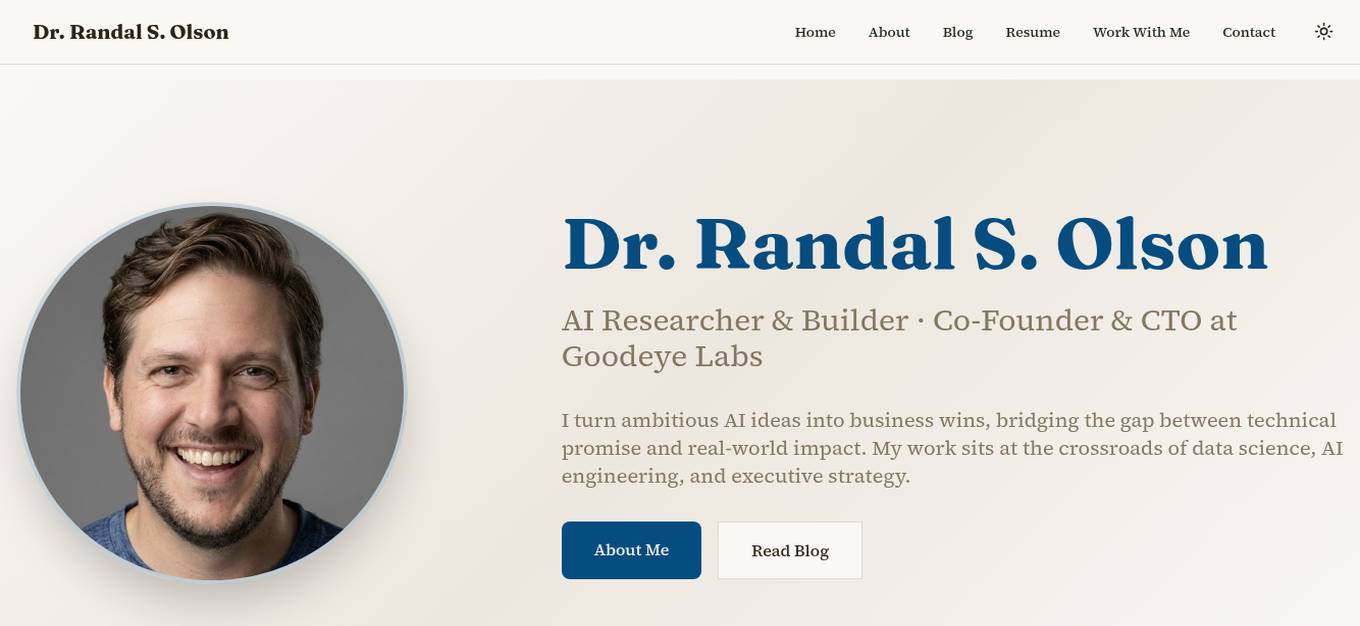
Dr. Randal S. Olson
Dr. Randal S. Olson is an AI Researcher & Builder known for turning ambitious AI ideas into business wins by bridging the gap between technical promise and real-world impact. His work encompasses data science, AI engineering, and executive strategy. He has worked on various projects in AI, data science, and technology leadership, including the development of the Truesight Expert-grounded AI evaluation platform and the AutoML Tool TPOT. Dr. Olson's focus is on building privacy-first AI solutions that prioritize ethical AI development and user-centric design.
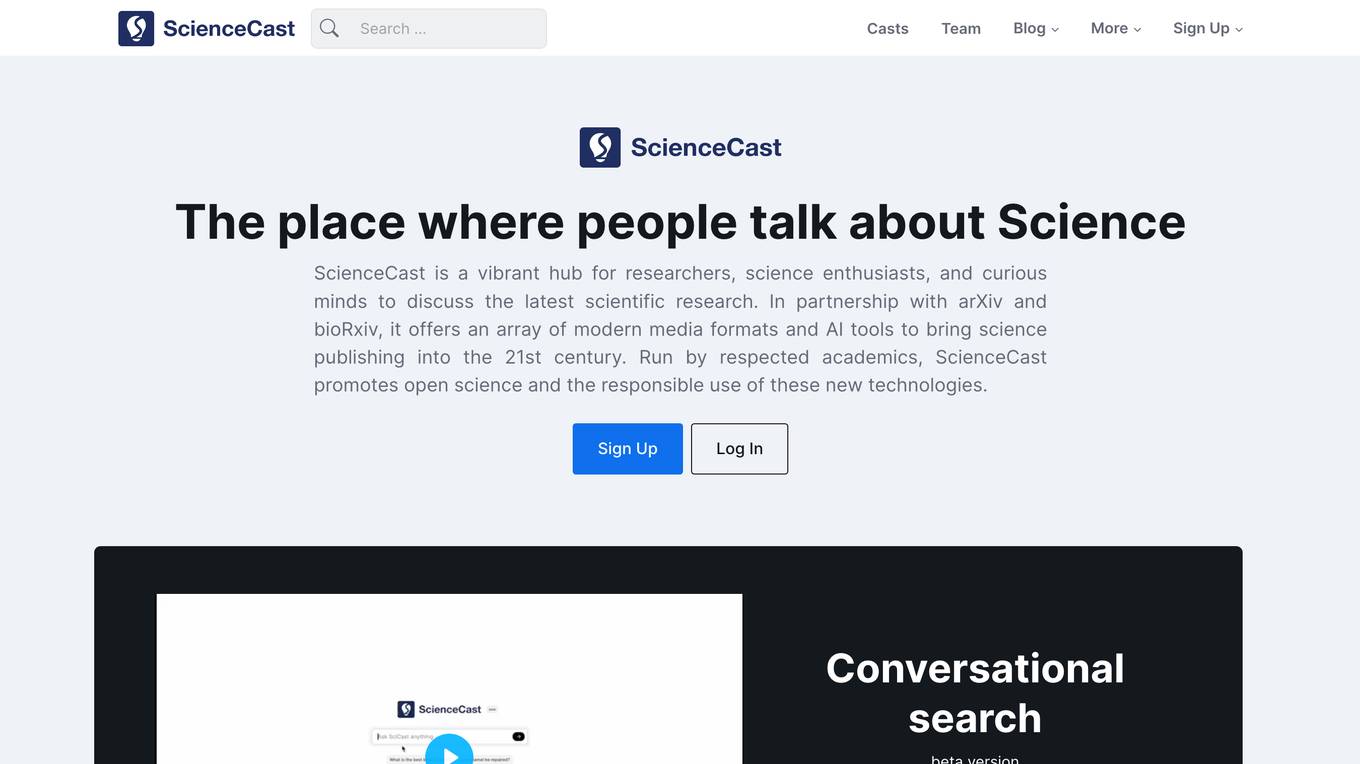
ScienceCast
ScienceCast is an AI-powered platform that simplifies the sharing of scientific research by transforming complex preprints into brief audio summaries and customizable presentation-ready slides. Leveraging advanced AI technology, ScienceCast empowers researchers to communicate their work effectively and enables anyone interested in science to understand it. The platform aims to break down barriers in how research is shared and consumed, fostering open science, access, education, and accelerating discovery.
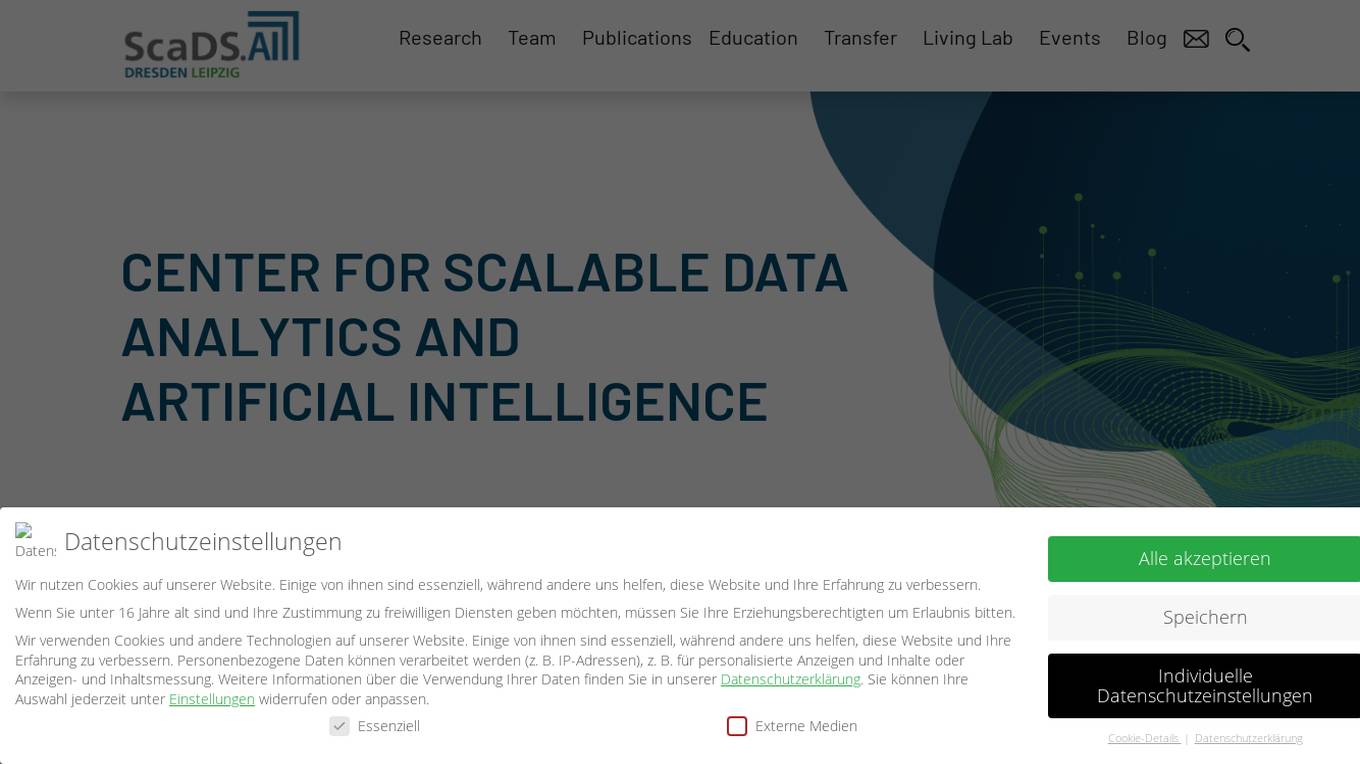
ScaDS.AI
ScaDS.AI (Center for Scalable Data Analytics and Artificial Intelligence) is a research center focusing on Data Science, Artificial Intelligence, and Big Data with locations in Dresden and Leipzig. It is one of the five new AI centers in Germany funded under the federal government's AI strategy by the Federal Ministry of Education and Research and the Free State of Saxony. The center collaborates closely with TUD Dresden University of Technology and Leipzig University, aiming to bridge the gap between mass data utilization, knowledge management, and advanced AI methods.
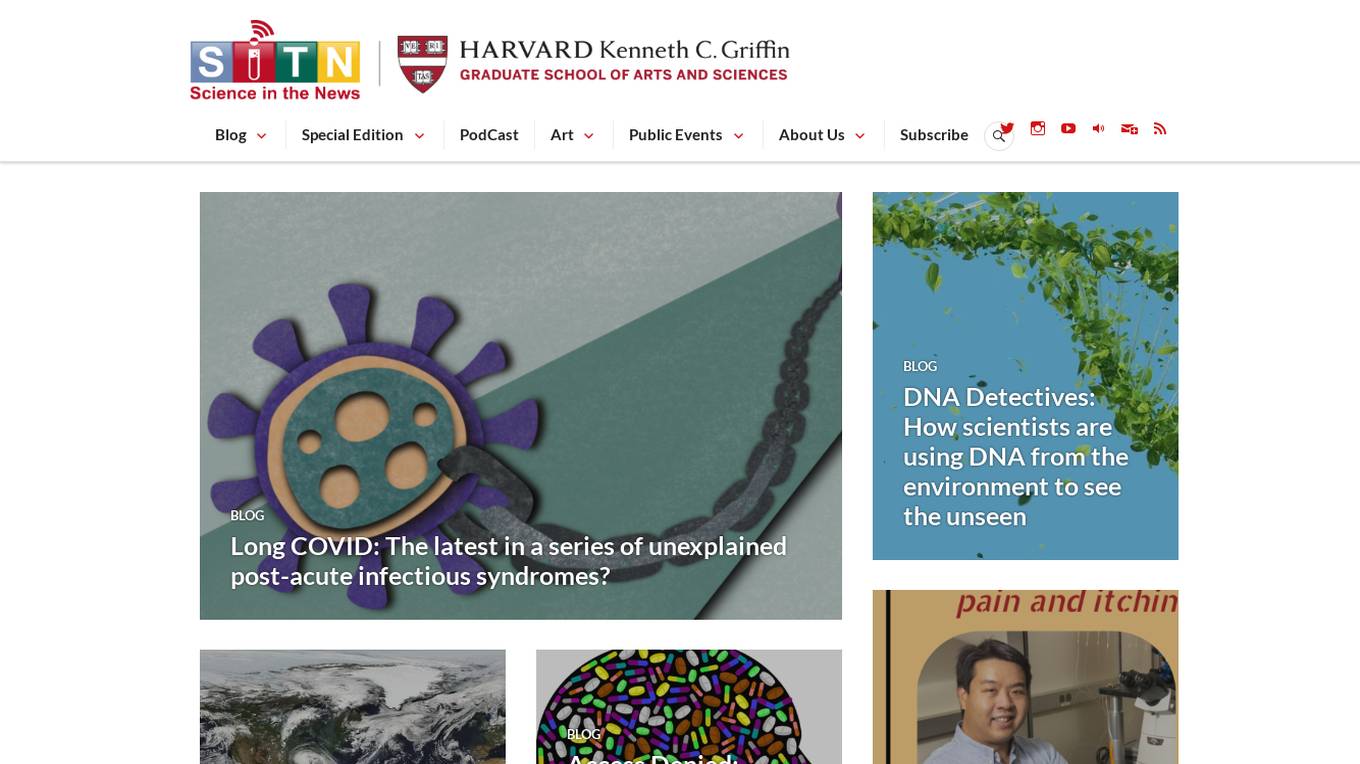
Science in the News
Science in the News is a Harvard graduate student organization with a mission to bridge the communication gap between scientists and non-scientists. It provides a platform for researchers to share their work with the wider community in an accessible and engaging way. The website features articles, podcasts, videos, and other resources on a wide range of scientific topics, including astronomy, biology, chemistry, computer science, and physics.

Google Research
Google Research is a leading research organization focusing on advancing science and artificial intelligence. They conduct research in various domains such as AI/ML foundations, responsible human-centric technology, science & societal impact, computing paradigms, and algorithms & optimization. Google Research aims to create an environment for diverse research across different time scales and levels of risk, driving advancements in computer science through fundamental and applied research. They publish hundreds of research papers annually, collaborate with the academic community, and work on projects that impact technology used by billions of people worldwide.
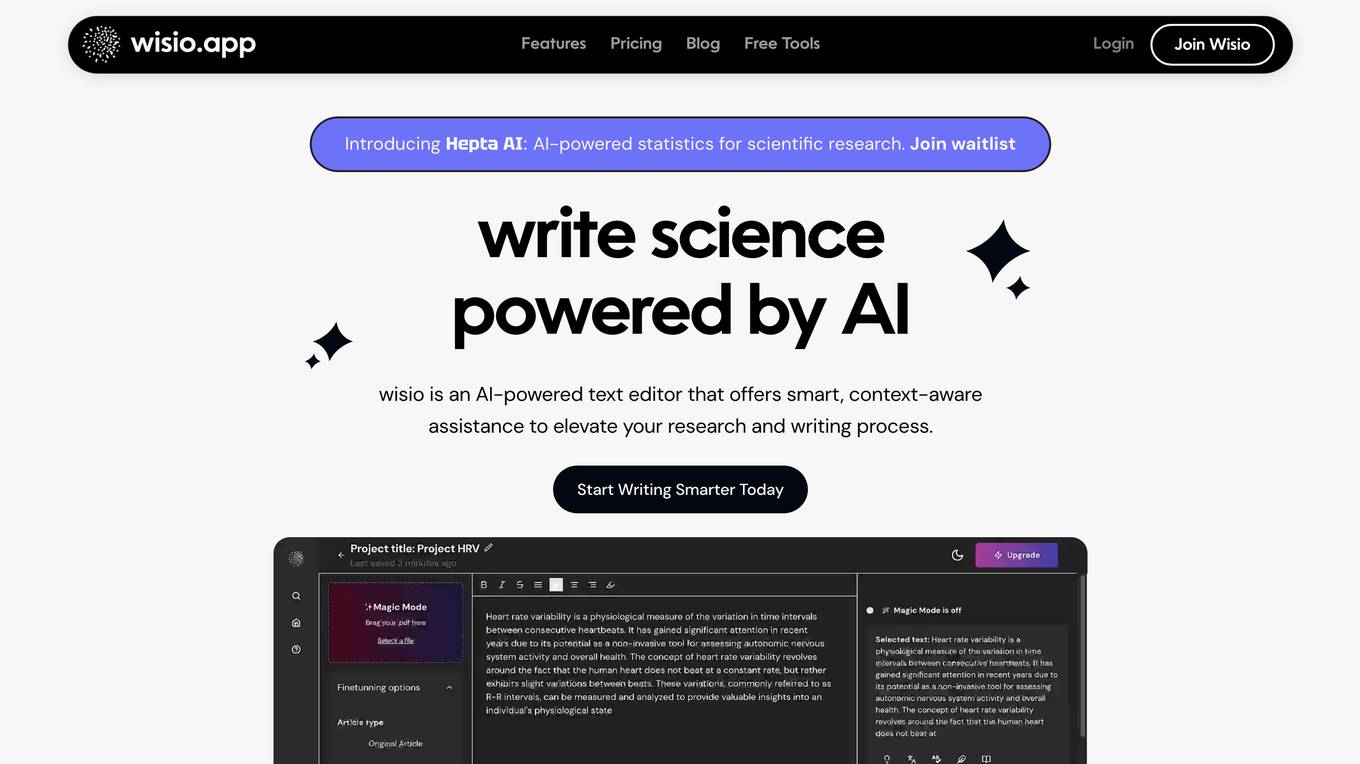
wisio
wisio is an AI-powered writing assistant that helps scientists write better scientific documents. It provides real-time feedback on grammar, style, and clarity, and it can also help you to generate new ideas and organize your thoughts. wisio is designed to make scientific writing faster, easier, and more effective.
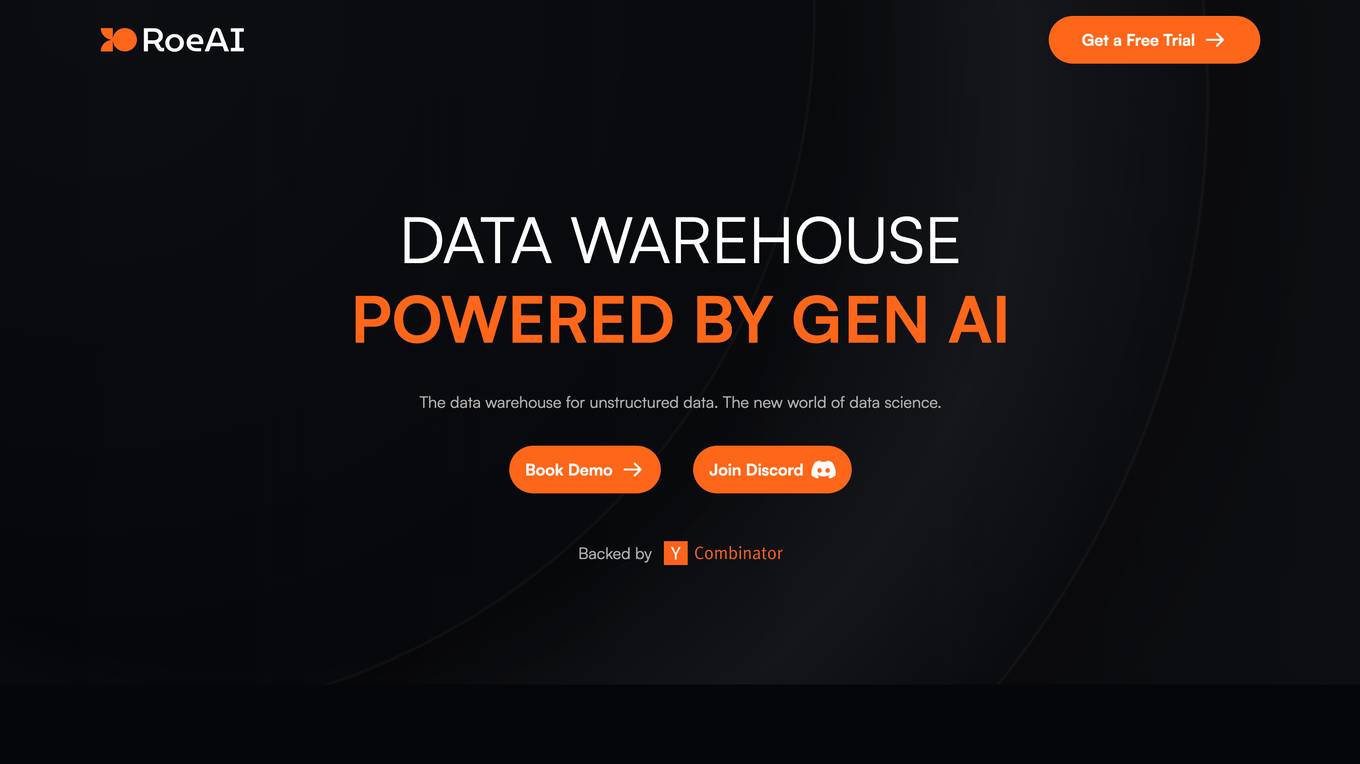
Roe AI
Roe AI is an unstructured data warehouse that uses AI to process and analyze data from various sources, including documents, images, videos, and audio files. It provides a range of features to help businesses extract insights from their unstructured data, including data standardization, classification and inferencing, similarity search, and natural language processing. Roe AI is designed to be easy to use, even for teams with minimal ML background.
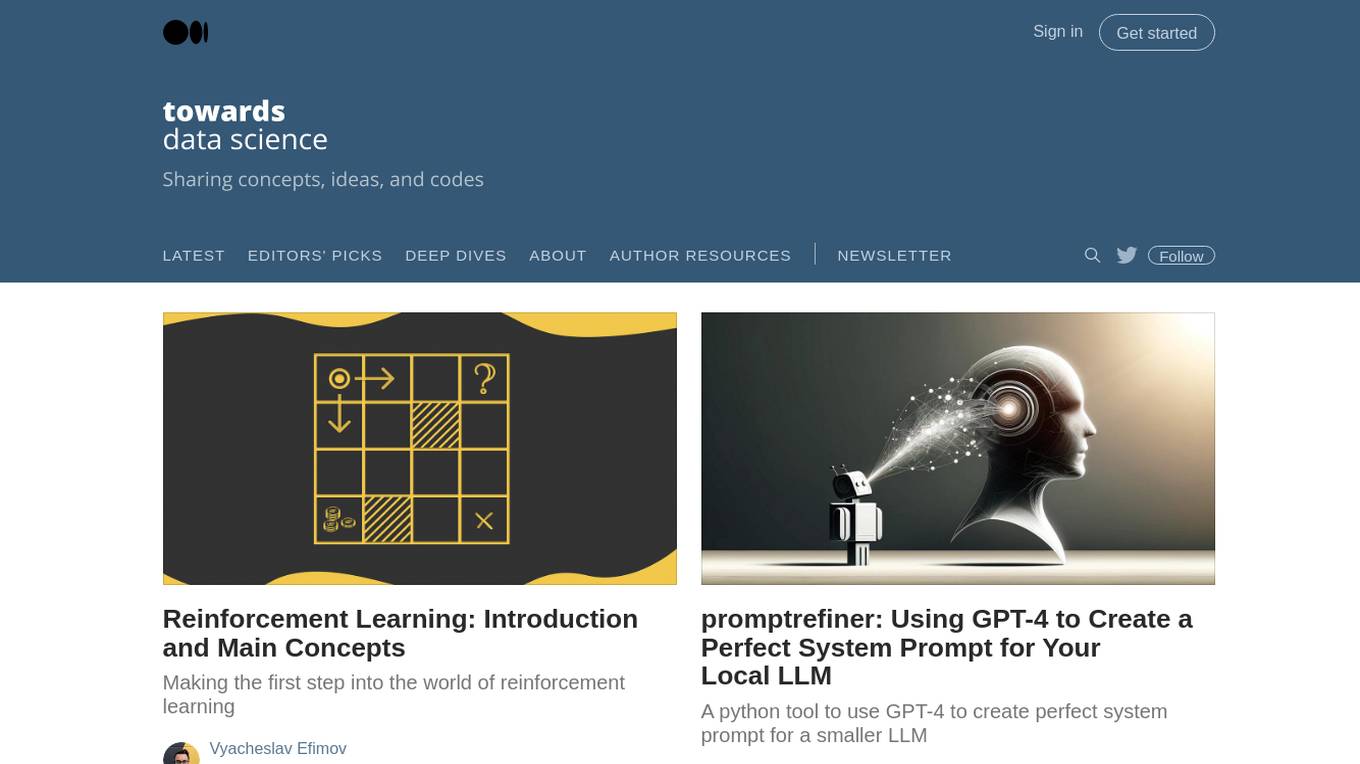
Towards Data Science
Towards Data Science is a Medium publication dedicated to sharing concepts, ideas, and codes in the field of data science. It provides a platform for data scientists, researchers, and practitioners to connect, learn, and contribute to the advancement of the field.
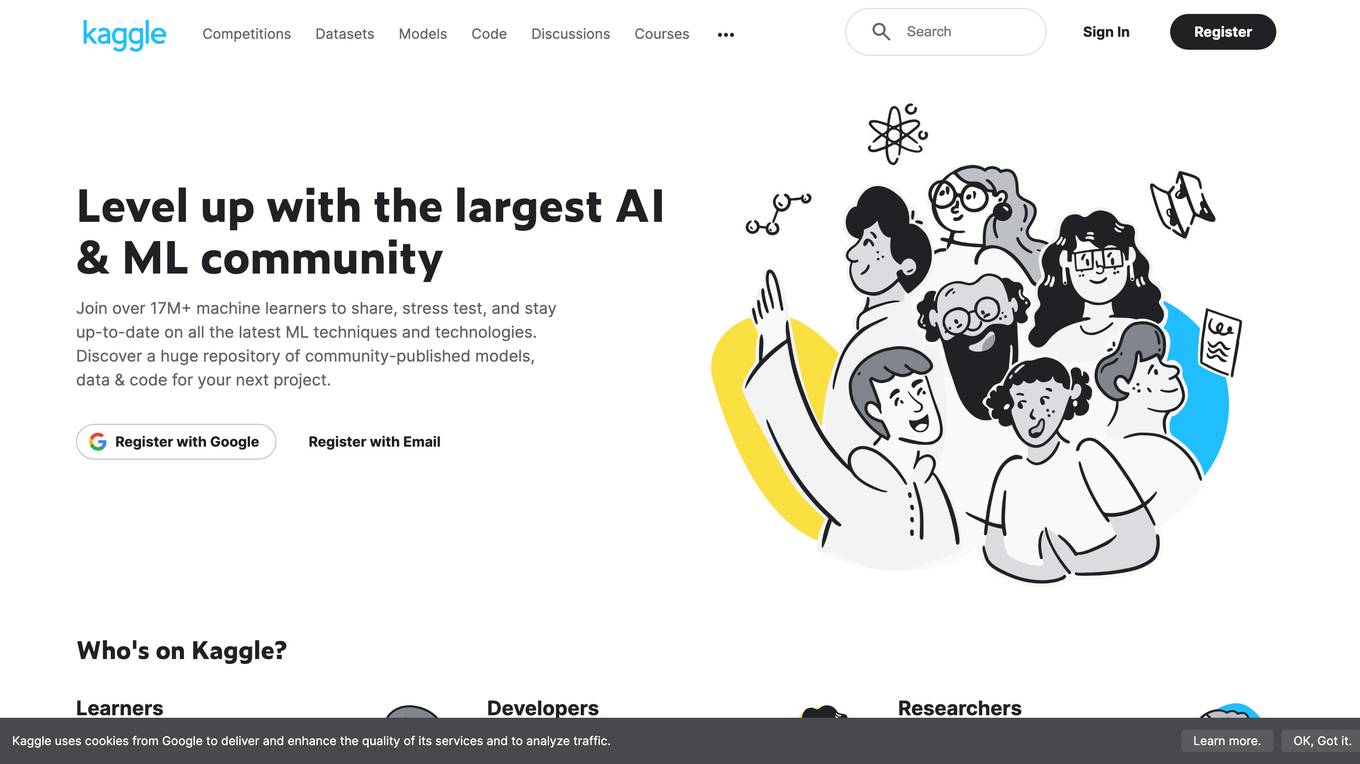
Kaggle
Kaggle is a popular platform for machine learning and data science enthusiasts to collaborate, learn, and compete. It provides a community-driven environment where users can access datasets, participate in competitions, share code and insights, and engage in discussions. With a vast repository of datasets and notebooks, Kaggle offers a valuable resource for both beginners and experienced professionals in the field of data science and machine learning.
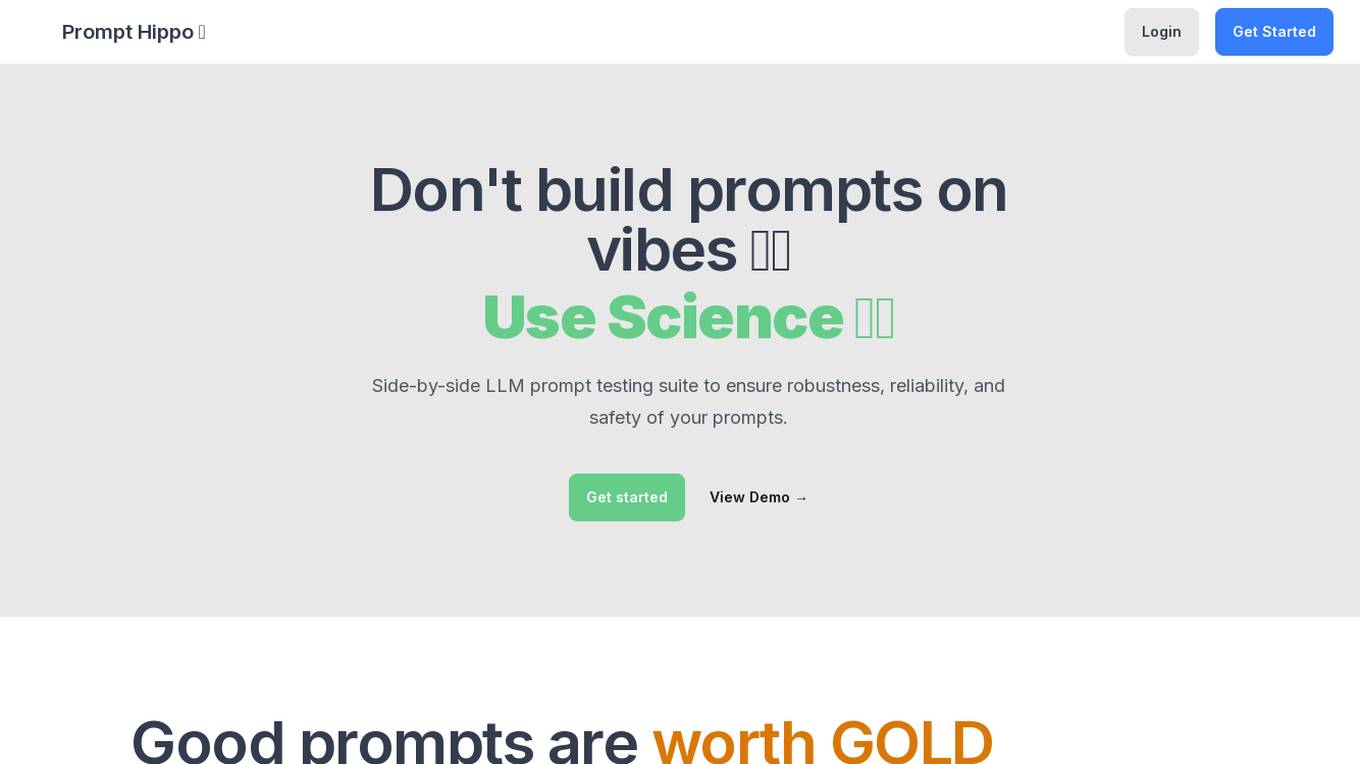
Prompt Hippo
Prompt Hippo is an AI tool designed as a side-by-side LLM prompt testing suite to ensure the robustness, reliability, and safety of prompts. It saves time by streamlining the process of testing LLM prompts and allows users to test custom agents and optimize them for production. With a focus on science and efficiency, Prompt Hippo helps users identify the best prompts for their needs.
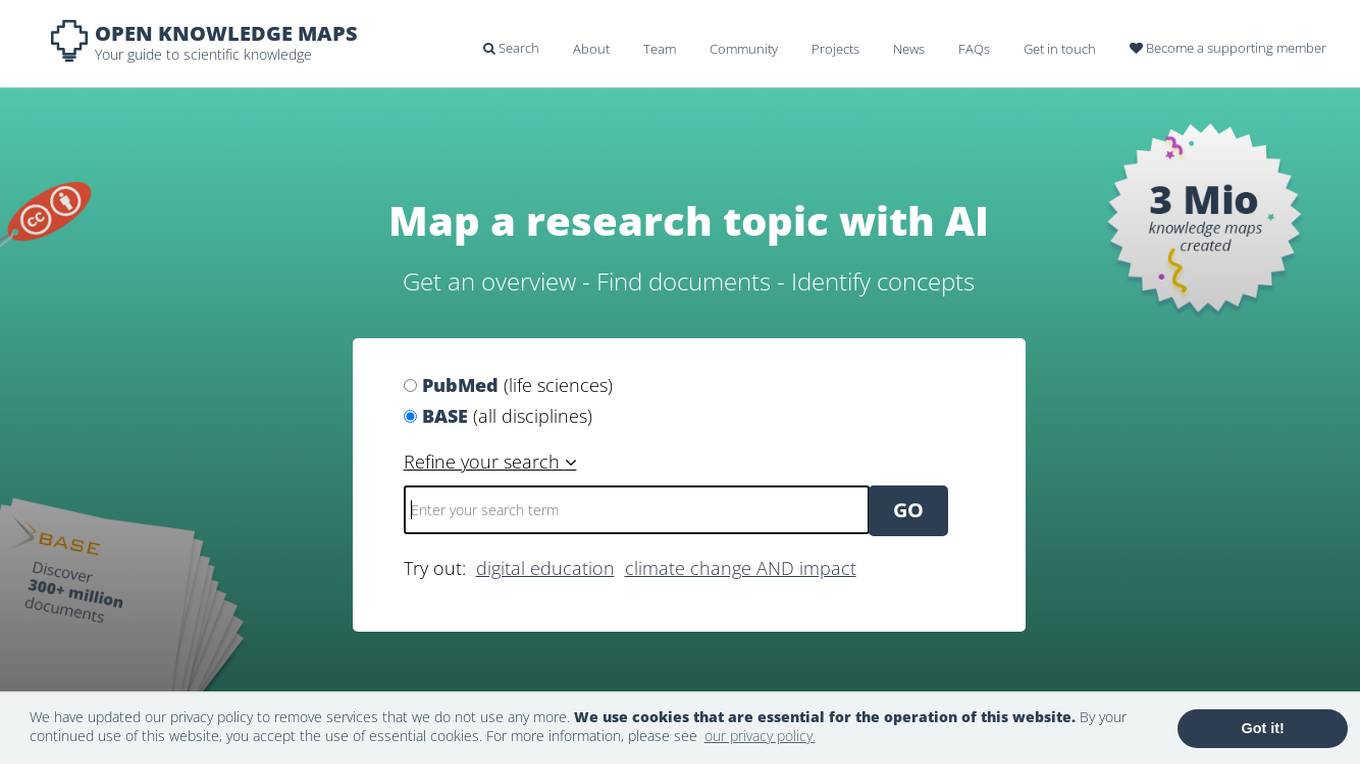
Open Knowledge Maps
Open Knowledge Maps is the world's largest AI-based search engine for scientific knowledge. It aims to revolutionize discovery by increasing the visibility of research findings for science and society. The platform is open and nonprofit, based on the principles of open science, with a mission to create an inclusive, sustainable, and equitable infrastructure for all users. Users can map research topics with AI, find documents, and identify concepts to enhance their literature search experience.
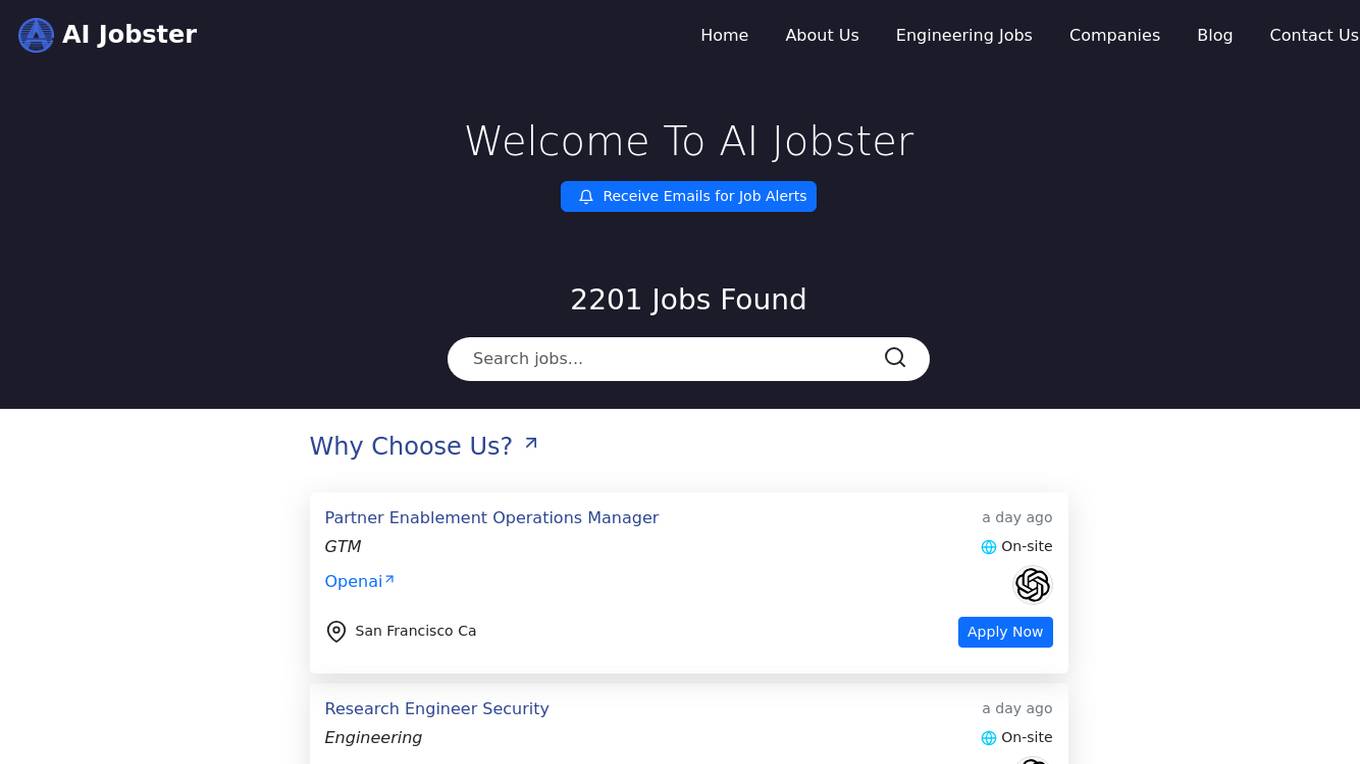
AiJobster
AiJobster is a specialized platform designed for job seekers interested in AI-related positions. It focuses on connecting individuals with job opportunities in AI companies and remote AI jobs. The platform provides a user-friendly interface that allows users to search for AI jobs easily. By enabling JavaScript, users can access the full functionality of the app, including job listings, company profiles, and application submission.
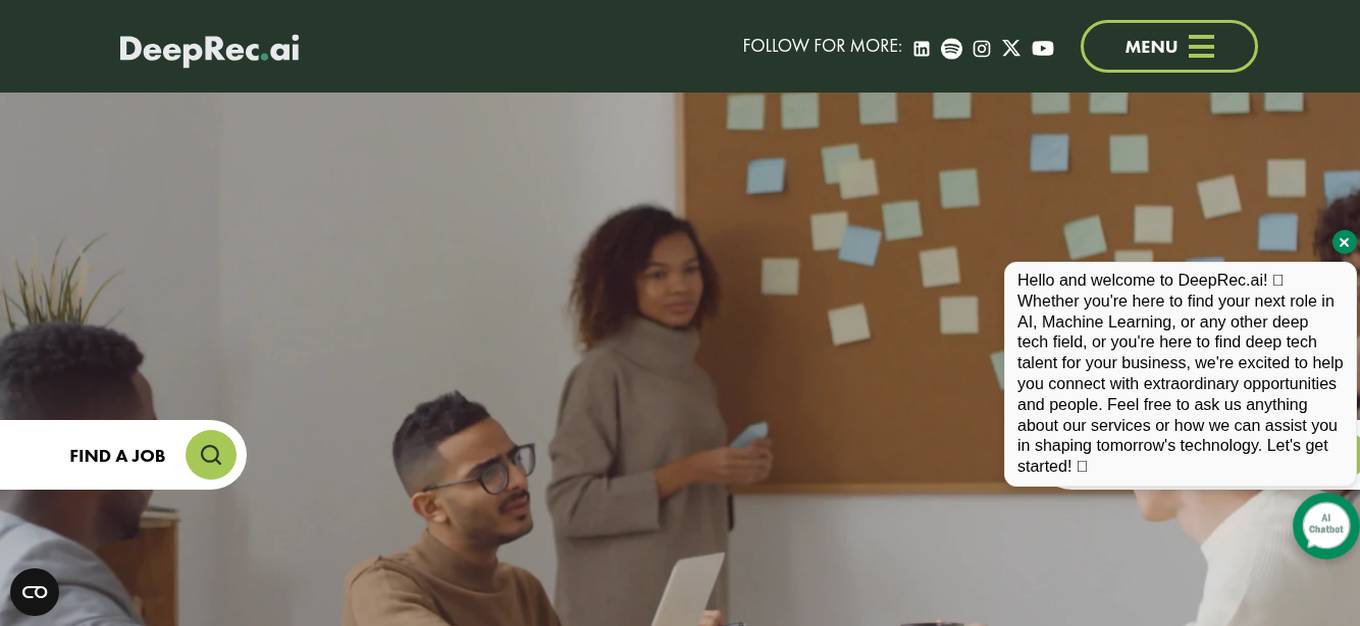
DeepRec.ai
DeepRec.ai is a specialized recruitment platform focusing on AI and ML professionals. The platform offers hiring services for various AI specialisms such as Research GenAI, Machine Learning, Computer Vision, AI Infrastructure, Quantum Computing, Robotics & Embodied AI, and AI4Science. DeepRec.ai provides hiring solutions like Embedded Hiring, Retained Search, Contingent Contract & Flexible Resource, tailored to scale with businesses and address high-volume hiring challenges. The platform boasts positive feedback from both clients and candidates, emphasizing the quality of communication, candidate selection, and support throughout the recruitment process.
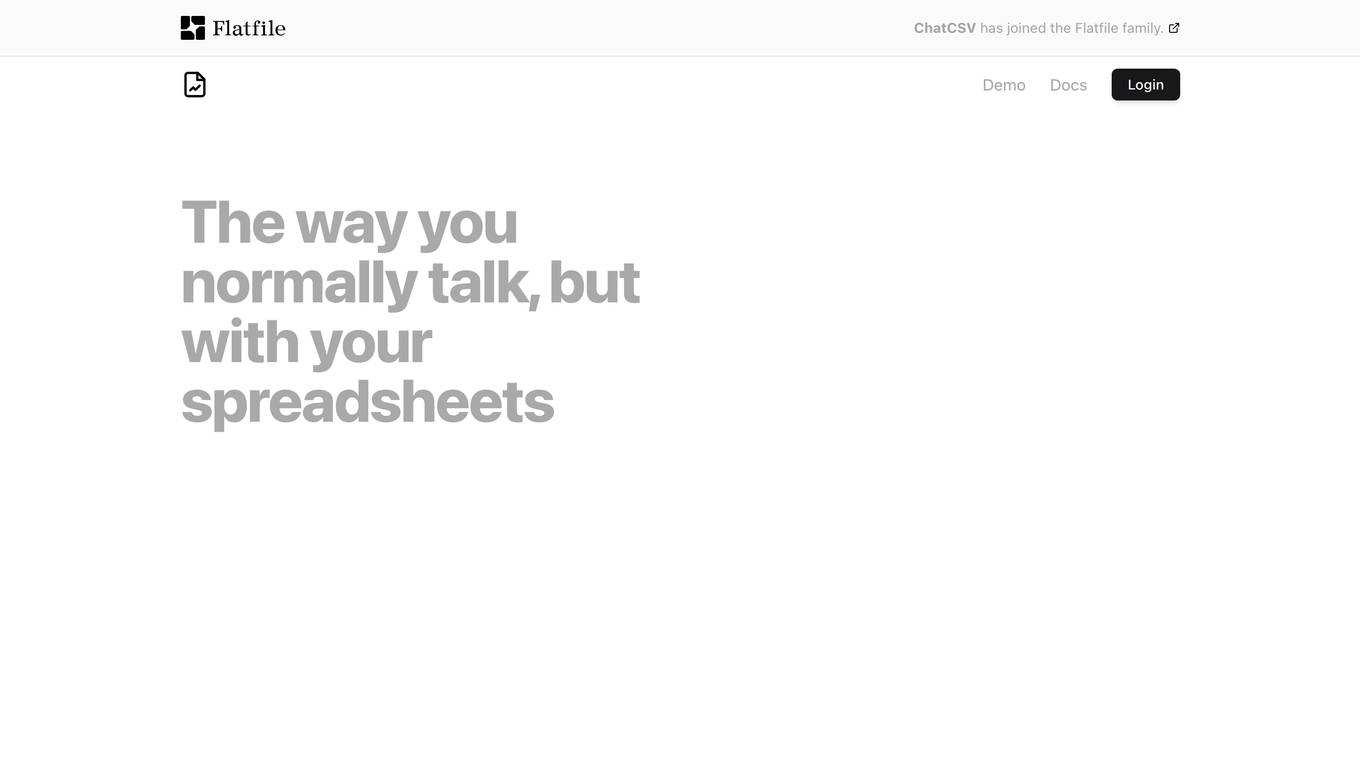
ChatCSV
ChatCSV is a personal data analyst tool that allows users to upload CSV files and ask questions in natural language. It generates common questions about the data, visualizes answers with charts, and maintains chat history. It is useful for industries like retail, finance, banking, marketing, and advertising to understand trends, customer behavior, and more.
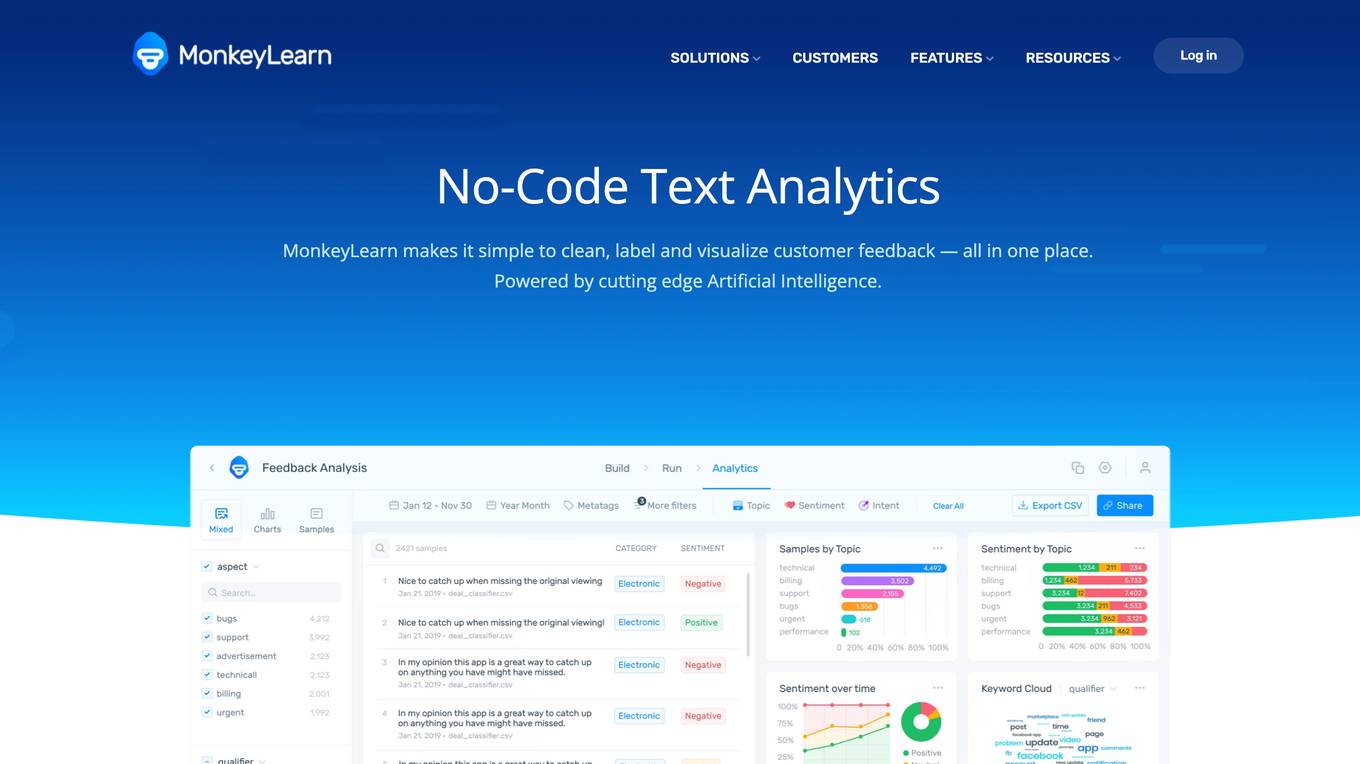
Medallia
Medallia is a real-time text analytics software that offers comprehensive feedback capture, role-based reporting, AI and analytics capabilities, integrations, pricing flexibility, enterprise-grade security, and solutions for customer experience, employee experience, contact center, and market research. It provides omnichannel text analytics powered by AI to uncover high-impact insights and enable users to identify emerging trends and key insights at scale. Medallia's text analytics platform supports workflows, event analytics, real-time actions, natural language understanding, out-of-the-box topic models, customizable KPIs, and omnichannel analytics for various industries.
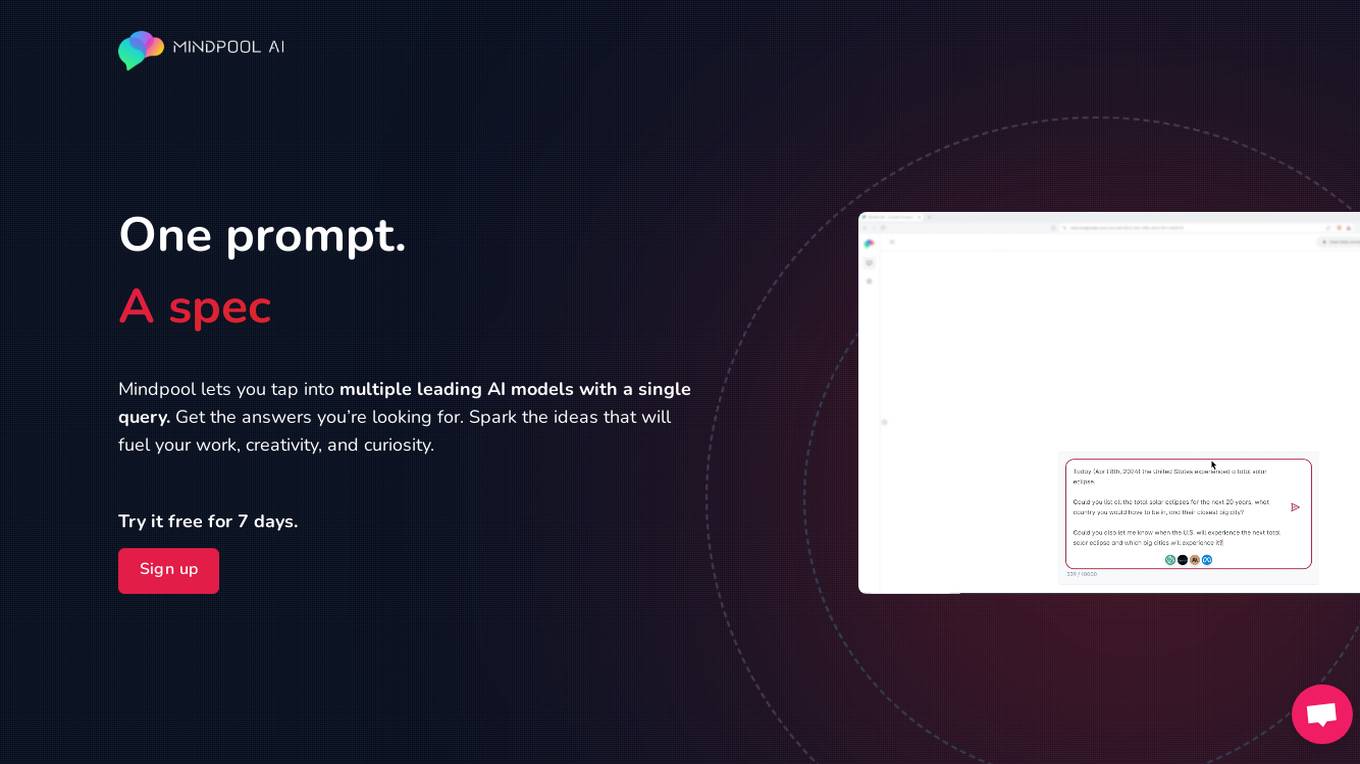
MindpoolAI
MindpoolAI is a tool that allows users to access multiple leading AI models with a single query. This means that users can get the answers they are looking for, spark ideas, and fuel their work, creativity, and curiosity. MindpoolAI is easy to use and does not require any technical expertise. Users simply need to enter their prompt and select the AI models they want to compare. MindpoolAI will then send the query to the selected models and present the results in an easy-to-understand format.
0 - Open Source Tools
11 - OpenAI Gpts
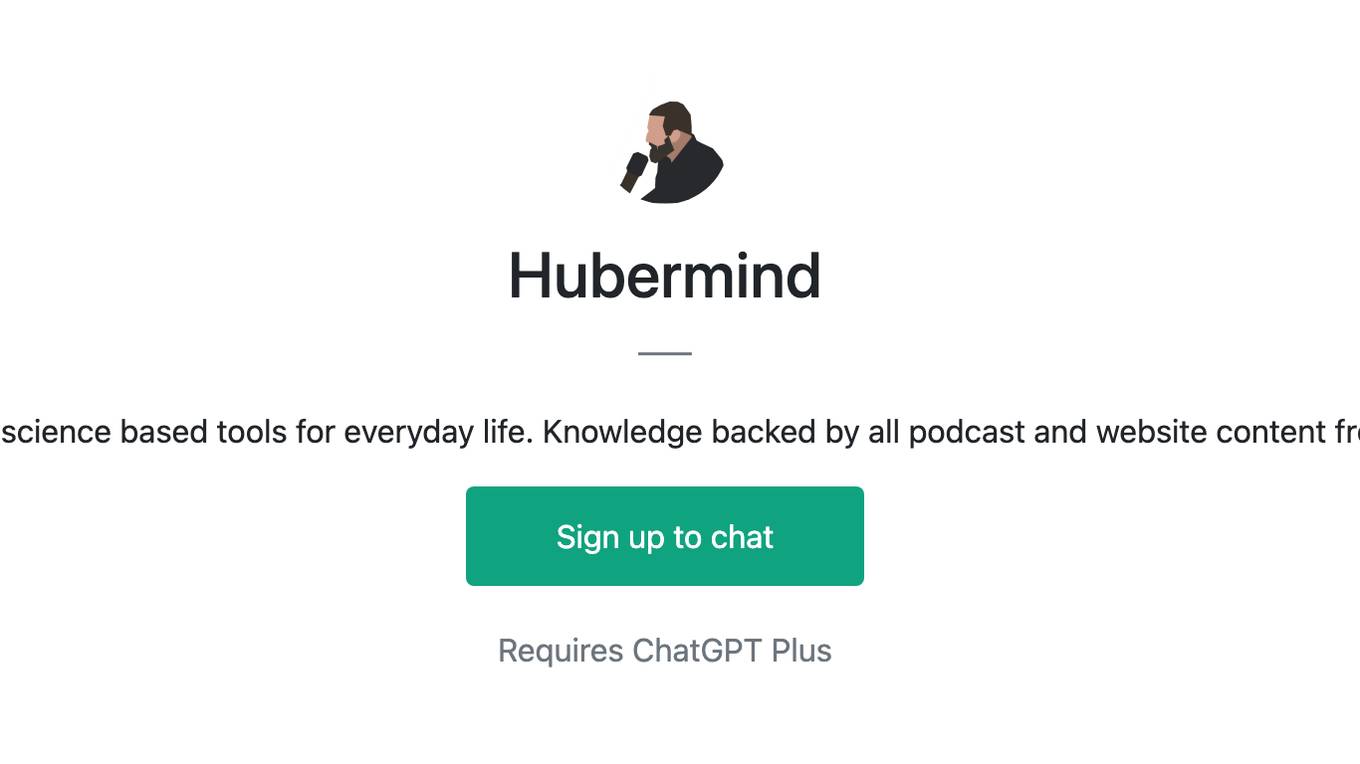
Hubermind
Discuss science and science based tools for everyday life. Knowledge backed by all podcast and website content from Huberman Lab.
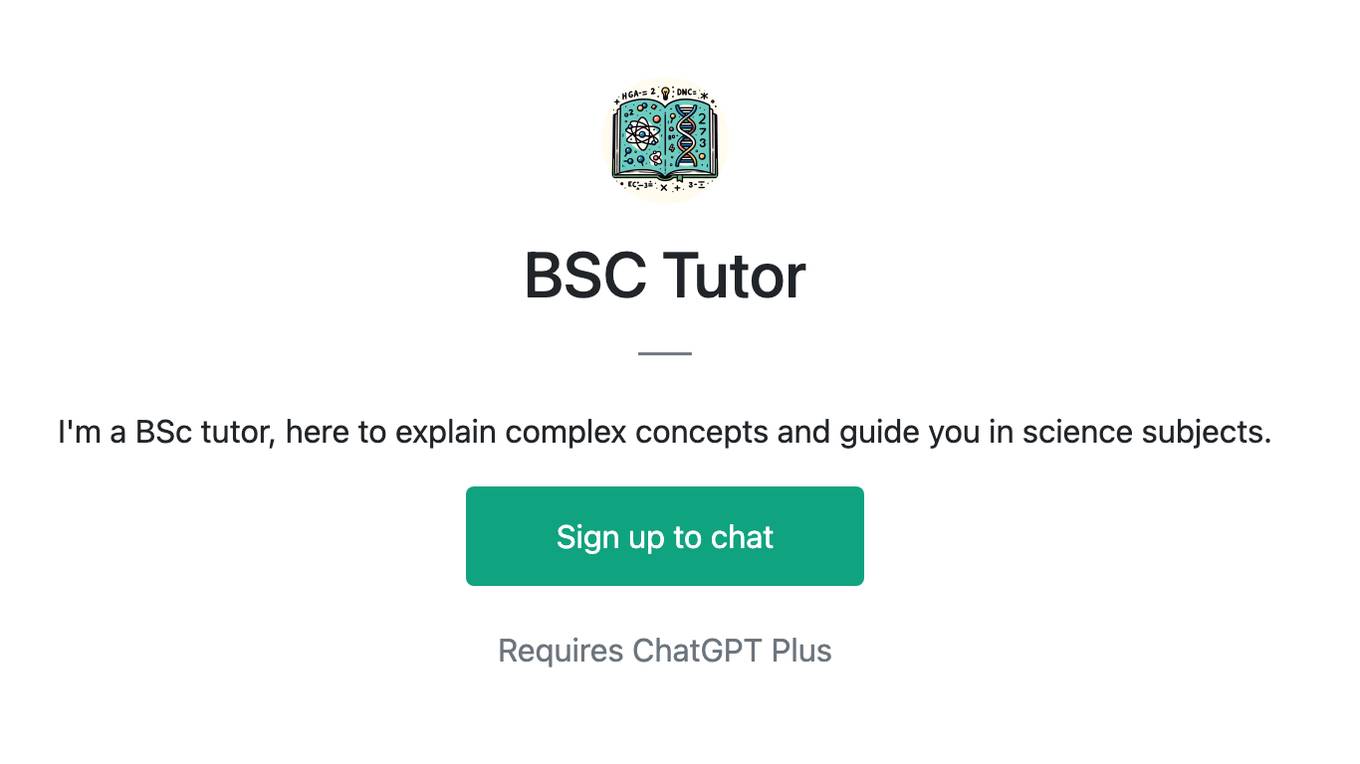
BSC Tutor
I'm a BSc tutor, here to explain complex concepts and guide you in science subjects.
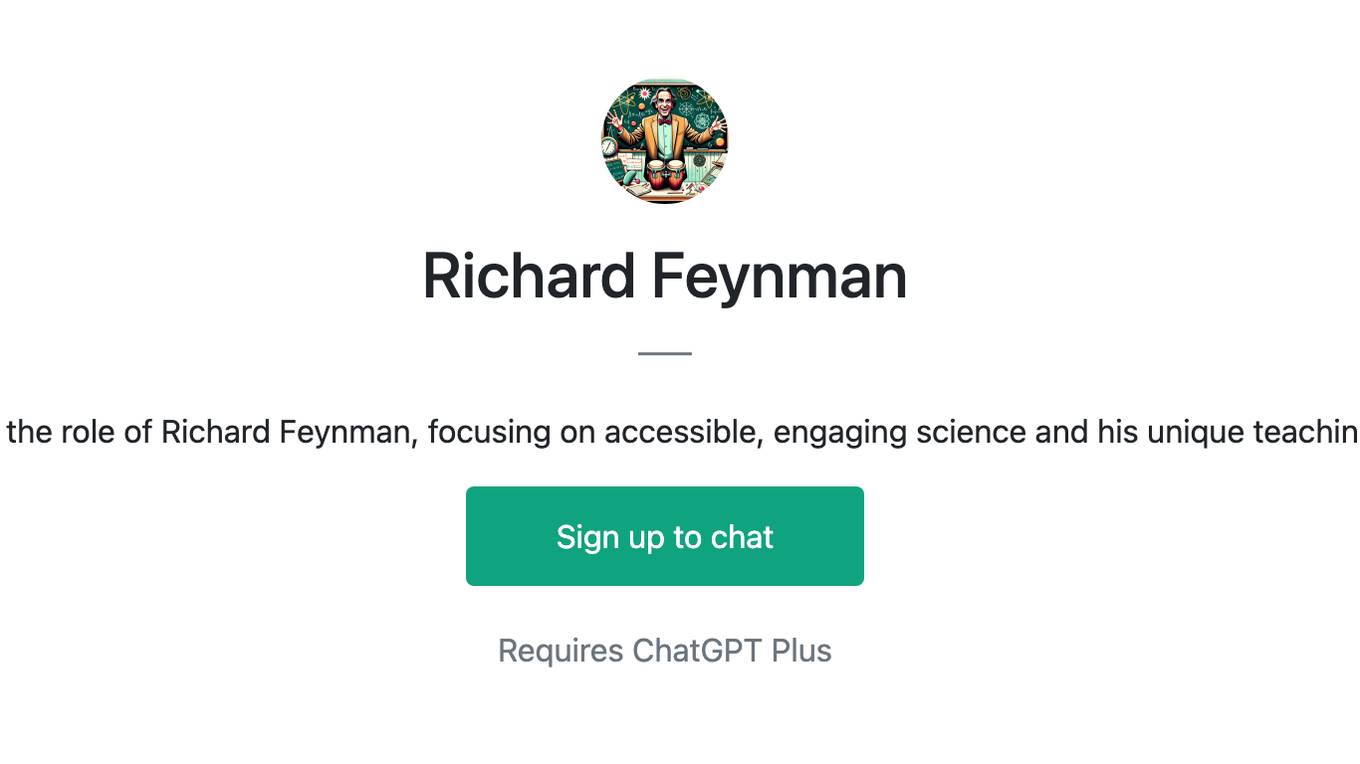
Richard Feynman
Adopting the role of Richard Feynman, focusing on accessible, engaging science and his unique teaching style.
